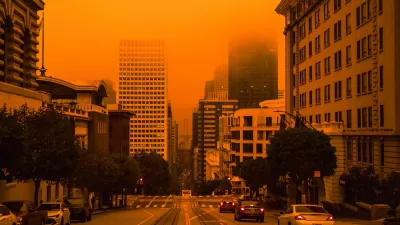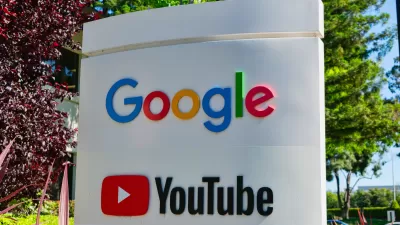TV weather reporters should be educators of the public about climate change. Yet they range from being outright deniers to keeping silent about this cataclysmic threat to life on Earth. An examination of why and what can be done about it.
Television weather news in the United States tends to be bizarrely quiet on an issue that is directly on-topic and supremely important: global warming. Bill Adams, a land use attorney from San Diego, cites a local example, and goes on to note:
There are dozens of high-profile weather reporters across the country willing to pit their unimpressive scientific credentials backed by their impressive egos against the weight of scientific opinion and studies, as set forth in this 2010 Think Progress report on climate change denier weather reporters. Additionally, there are slick and well funded websites promoting denial of climate change science, e.g., junkscience.com, which goes to great lengths to make it appear that it is mainstream science and that climate change is based on “junk science.” Notably, and not coincidentally, the term “junk science” was coined by the tobacco industry to discredit science demonstrating the destructive health impact of smoking. Steven J. Milloy, the founder of junkscience.com, has close ties to both the tobacco industry and the oil industry, and he is a correspondent for Fox News.
Such misinformation is often promoted by people on the periphery of climate change science cloaked in false expertise.
However, Adams believe these self-assured but misguided deniers aren't as bad as those who know better but remain silent:
Perhaps more damaging than the purveyors of contra-scientific views on climate change is the conspicuous absence of weather reporters, or their news media employers, who accurately report climate change science. They may fear alienating viewers who hold strong denial beliefs or corporate sponsors, or there may be other reasons for their silence. Or maybe its a structural bias, as discussed in the very thoughtful Inside Climate News article – Why Don’t TV Meteorologists Believe in Climate Change? Whatever the reason, it is an important part of the dysfunction that is preventing the country from taking the steps necessary to avoid the greatest cataclysm humans have ever faced – one which will take a toll on life and habitability on a scale unmatched since volcanoes and a meteor wiped out most life on earth by rapidly changing the global climate from tropical to arctic.
Adams believes that weather reporters must play a lead role in educating the public about climate change science. He makes the following recommendations to get recalcitrant reporters and their employers to speak the truth:
1) It would be incredibly helpful, especially in the Western U.S., to regularly see a graph or comparison of current seasonal average temperatures with historic averages. The same goes for precipitation, snow pack, and ocean temperatures. These graphs should be a routine part of every TV and newspaper weather report. While a few politically polarized viewers may see conspiracy behind such hard data, most viewers will not.
2) It’s time for the public to pressure stations to remove the self-imposed gag on climate change discussion – whether by petition, email, or boycott.
3) Environmental organizations should endorse the most environmentally accurate stations and encourage their supporters to watch these stations.
FULL STORY: How TV news weather reporters are aiding and abetting climate change

Alabama: Trump Terminates Settlements for Black Communities Harmed By Raw Sewage
Trump deemed the landmark civil rights agreement “illegal DEI and environmental justice policy.”

Planetizen Federal Action Tracker
A weekly monitor of how Trump’s orders and actions are impacting planners and planning in America.

Why Should We Subsidize Public Transportation?
Many public transit agencies face financial stress due to rising costs, declining fare revenue, and declining subsidies. Transit advocates must provide a strong business case for increasing public transit funding.

Understanding Road Diets
An explainer from Momentum highlights the advantages of reducing vehicle lanes in favor of more bike, transit, and pedestrian infrastructure.

New California Law Regulates Warehouse Pollution
A new law tightens building and emissions regulations for large distribution warehouses to mitigate air pollution and traffic in surrounding communities.

Phoenix Announces Opening Date for Light Rail Extension
The South Central extension will connect South Phoenix to downtown and other major hubs starting on June 7.
Urban Design for Planners 1: Software Tools
This six-course series explores essential urban design concepts using open source software and equips planners with the tools they need to participate fully in the urban design process.
Planning for Universal Design
Learn the tools for implementing Universal Design in planning regulations.
Caltrans
Smith Gee Studio
Institute for Housing and Urban Development Studies (IHS)
City of Grandview
Harvard GSD Executive Education
Toledo-Lucas County Plan Commissions
Salt Lake City
NYU Wagner Graduate School of Public Service




























